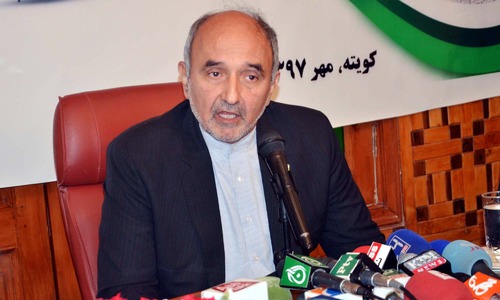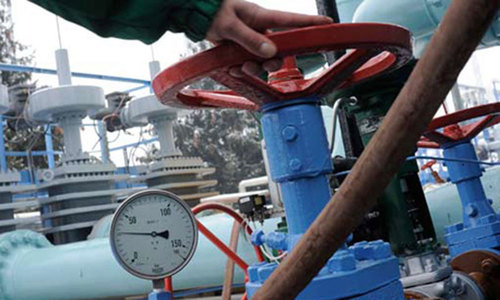ISLAMABAD: Petroleum Minister Ghulam Sarwar Khan on Friday promised to revise existing slabs for domestic gas consumers to settle the issue of inflated bills caused by the price hike.
Speaking at a news conference, the minister said the prices were increased following pressure from the International Monetary Fund (IMF) but said the government would revise billing slabs to minimise the difficulties being faced by the consumers now protesting against the government.
He said inquiries into the inflated gas bills were currently in progress and the government had decided to review gas price slabs to cut prices for consumers. He said a few new slabs were created by the government to minimise the burden on low-income strata of society but burden fell on unintended segments.
Pakistan to initiate economic diplomacy between Saudi Arabia, Iran and Qatar
Responding to a question, the minister said Saudi Arabia did not have any security concerns particularly in Balochistan where it was planning to make investments worth billions of dollars in oil refinery, minerals and renewable energy sources. He also brushed aside notions that Iran had any concerns about Saudi investments in Gwadar.
In fact, Pakistan had taken a number of initiatives to bring peace and stability in the region and was ready to play the role of a mediator between Saudi Arabia and Iran, he said adding Pakistan played a key role for negotiations between the US and Afghan Taliban and next round of talks would be held in Islamabad on Feb 18 soon after visit of Crown Prince Mohammad Bin Salman.
This is the first step towards bringing peace in the region, he said. In the next step, Pakistan wanted to play a role of mediator between Iran and Saudi Arabia and between Qatar and Saudi Arabia. The minister said the security situation in Pakistan had improved a lot and different countries were interested to make multi-billion dollar investments.
“Saudi Arabia is going to invest over $10 billion in setting up oil refinery and petrochemical complex”, he said but hastened to add that exact size of the refinery investment would be determined on the basis the feasibility study currently in the works.
The minister said 10 memoranda of understanding (MoUs) will be signed during the visit of the crown prince and his ministry, of which two will be signed by his ministry in the field of oil and minerals. KP and Balochistan have given their consent for Saudi investment in mineral sector.
Responding to a question regarding Pakistan’s request for review in LNG prices with Qatar, the minister said the government wanted to move ahead to improve bilateral relations with Qatar. He said the National Accountability Bureau was investigating the issue and “let it decide”. He, however, said Qatar had agreed to increase volume of LNG supply and negotiations were currently ongoing regarding LNG supply on credit facility for which he would be visiting Qatar later this month.
He said Saudi Arabia had also expressed interest to invest in LNG sector in Pakistan and wanted to invest in energy storages in Pakistan. In response to another question, Mr Khan said the government was conducting a study about requirement of gas for different sectors in Pakistan on the basis of which it would decide signing further LNG deals on government-to-government basis to import LNG.
The minister said the upcoming visit of the crown prince was a success of the economic diplomacy between two brotherly countries. “Previous governments were keen to build personal relations with Saudi Arabia and China whereas Prime Minister Imran Khan has focused on developing relations based on mutual respect and national interests under his vision about a new Pakistan”.
He said the Saudi side had indicated the capacity of proposed oil refinery to be 250,000-300,000 bpd (11-13 million tonnes per annum) and the cost of the refinery will be determined after the feasibility study to be initiated following the signing of the MoU.
Besides the Saudis were showing interest in Pakistan’s mines, minerals, fertilisers, phosphate and LNG storage capacity. He said the refining project would save $1.2bn per annum in the form of import substitution.
Published in Dawn, February 16th, 2019














































